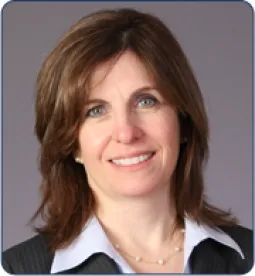SEC Chair Mary Jo White and Enforcement Director Andrew Ceresney have repeatedly said that financial fraud would be a priority of the SEC’s enforcement program. Two recent cases involving companies with China-based operations may signal a new trend in this area.
On March 11, 2014, the SEC charged animal feed company AgFeed Industries Inc. in a massive accounting fraud scheme. According to the SEC, four company officials–executive chairman Songyan Li, CEO Junhong Xiong, CFO Selina Jin, and controller Shaobo Ouyang–engaged in several tactics to artificially inflate revenue, including creating fake invoices for sales that did not occur and misrepresenting the weight of hogs which resulted in falsely amplified revenues. The SEC alleged that to perpetuate the scheme, the executives kept two sets of company books–an “outside” set that the company provided to its auditors and an “inside” real set that contained the much lower accurate revenue numbers. All told, the SEC charged the executives with falsely reporting revenues of approximately $239 million.
The fraud allegedly extended beyond the executives to include director K. Ivan Van Gothner, chair of the company’s audit committee. Sensing that fraud was occurring, Gothner sought the advice of a company advisor who encouraged him to enlist outside legal counsel. Gothner ignored the advice and instead, the SEC claims, neglected to conduct any investigation and helped the company’s CFO, Edward J. Pazdro, to spin off the company’s feed division in an effort to raise capital and increase their personal profits. The SEC’s complaint charges the company officials with violating or aiding and abetting violations of the anti-fraud, reporting, books and records, and internal controls provisions of the federal securities laws. The SEC is seeking disgorgement of profits, interest, financial penalties, and officer-and-director bars.
The SEC separately reached an agreement with the company’s interim CEO who had served in that capacity from February 2011 until December 2011 based on allegations that he knew about the fraud and failed to undertake certain investigative steps or provide information to the company’s independent auditor. The former CEO agreed to pay a $100,000 civil penalty and is barred from serving as an officer or director. In addition, the SEC entered into a cooperation agreement with the company’s former CFO. Despite knowing about reports of fraud within the company, the CFO signed the company’s management representation letter to AgFeed’s independent auditor, which failed to disclose the fraud. The CFO consented to additional proceedings to determine the amount of a civil penalty, agreed to cease and desist from committing future securities violations, and is barred from practicing before the Commission as an accountant for five years.
On March 27, 2014, the SEC announced fraud charges against L&L Energy, a Seattle-based company that also has operations in China. In this action, the SEC was not focused on accounting fraud, but rather on alleged misrepresentations regarding the company’s management. More specifically, the SEC alleges that the company’s founder, Dickson Lee, falsely represented in L&L quarterly and annual reports that Lee’s brother was the CEO and that a woman was the CFO, even though she had rejected Lee’s offer for the position. The SEC further alleges that Lee carried out the fraud by using false electronic signatures on Sarbanes-Oxley certifications. He also used these false certifications to secure the company’s listing on NASDAQ. The SEC also alleged that, despite the purported CFO confronting him about the fraud, Lee continued to generate false reports.
In July 2013, the SEC announced that it has formed the Financial Reporting and Audit Task Force, an initiative intended to help the staff identify fraudulent or improper financial reporting. Through this task force, the SEC will focus on high-risk areas of the market to identify violations relating to the preparation of financial statements, issuer reporting and disclosure, and audit failures. After the Task Force identifies potential fraud or misconduct, it refers the findings to investigative staff in D.C. or to one of the 11 regional offices for further review. Given Chair White’s and Director Ceresney’s repeated references to the Task Force, it is likely we will see increased enforcement activity with respect to financial fraud in the coming months.




 />i
/>i

